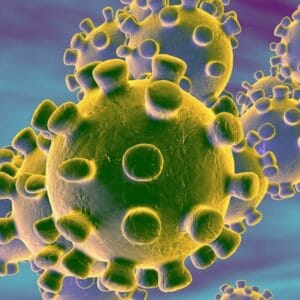In a new study, ASU researchers Rolf Halden and Olga Hart analyze what can and cannot be measured when tracking SARS-CoV-2 in wastewater, and they highlight the economic advantages of the new approach over conventional disease testing and epidemiological surveillance. Their research appears in the current issue of the journal Science of the Total Environment.
A new approach to monitoring the novel coronavirus (as well as other dangerous pathogens and chemical agents) is being developed and refined. Known as wastewater-based epidemiology (WBE), the method mines sewage samples for vital clues about human health. It can potentially identify levels of coronavirus infection at both a local and global scale.
Wastewater-based epidemiology holds the potential to break the coronavirus testing logjam in many developed nations like the U.S., but it could also be an invaluable tool for gathering health data in impoverished regions likely to bear the brunt of the pandemic.
Halden directs the Center for Environmental Health Engineering at ASU’s Biodesign Institute, which is working with the City of Tempe to study the city’s wastewater. A dashboard is available at covid19.tempe.gov.
